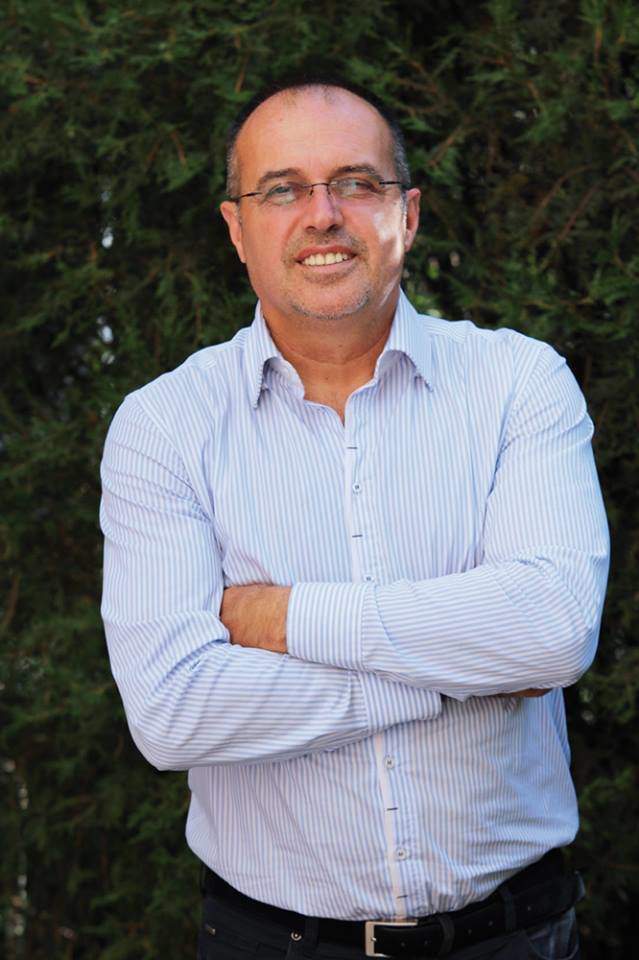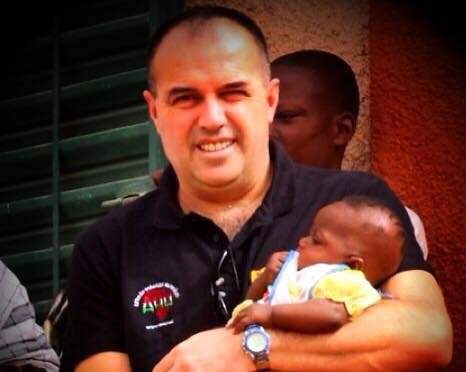The African-Hungarian Union is 10 years old – Interview with Sándor Balogh

The African-Hungarian Union (AHU) was founded 10 years ago in Budapest. 10 years in the life of a non-profit organisation is a long time, and many do not manage to last a decade, either for lack of money, or what is worse, lack of enthusiasm. Yet the AHU seems more energetic than ever. Globoport.hu has asked AHU president Sándor Balogh about their secret.

Globoport: Hungary does not have a colonial past, there is no significant African community in the country, and when the AHU was founded, relations with Africa were at their lowest. What inspired you to start a non-profit organisation focusing on Africa?
Sándor Balogh: Particularly this lack of information, which is so characteristic of Hungarian society. Hungarians basically have two equally false ideas about Africa. One is that “there are wars going on there”, and “people are starving there”, so it is a bad place that’s not worth visiting. Quite often even those who visit the tourist resorts are regarded as though they were brave adventurers, even though they were welcomed by services of European quality and many friendly faces. The other, romanticised image originates from nature documentaries that make it seem like there are no people living on the whole continent, only cute animals. What was missing 10 years ago was the portrayal of the authentic, living, human side of Africa, a continent which is far from idyllic, has its own, often serious issues, but is not entirely defined by wars and famine, and where the majority of the population is working, living their lives, and always striving to get a bit further ahead.
G: After 10 years, are you satisfied? Has your goal been accomplished?
SB: We can never be satisfied, but many things have changed, partly due to the progression of the world. Today Africa is present in public discourse, even if not necessarily in a positive context, and more and more people feel like it’s worth talking about, since they feel like the events there can directly affect us, too. And we have done a lot to help people see past the stereotypes. An important milestone was the creation of the African Database, where practically all scientific materials regarding Africa are freely available for those interested. And we have found that people are indeed downloading and reading these works. We appear in the media, partly on our own platforms, partly in big national newspapers, on television, and to mention another milestone, we also have launched our own courses with the help of the best experts on African studies. It is a recognition of our work that less than a month ago an Africa-group has been formed at the Hungarian Academy of Sciences.
G: Still, nowadays most of the news about Africa focus on the refugee crisis. Your organisation is in a peculiar situation: you’re representing Africa, but you’re speaking from a Hungarian point of view. Do you sense contradiction, tension regarding this issue?
SB: Not at all. I do not think Hungary’s and Africa’s interests differ in this question. The refugee crisis made it all the more topical what we have been talking about for a decade. There is huge potential in Africa, in every respect. If developments can begin, if African economies can get a boost, that is going to positively affect the whole world, since huge new market will appears where even those goods and services will be needed which are in an abundance in the developed world. At the same time, if we abandon Africa, if things take a turn for the worse, either because of climate change, or ethnic and religion conflicts, then this huge potential can become a huge destabilising force. Of course, the progression of the world will not be defined by non-profit organisations like us, but Hungary, as a developed country – as strange as that sounds, Hungary is a developed country –, and as a member of the European Union can in fact do much good to help Africa on the right path, so those living there will feel like it is worth staying, it is worth developing their homeland, the land of their ancestors, because it will produce results. And we are really glad that what we are saying is being listened to on many levels, since the government’s policy of opening to the south is exactly about establishing stronger ties with regions outside Europe which will benefit both parties.
[button link=”https://dailynewshungary.com/tag/africa/” type=”big” color=”orange” newwindow=”yes”] Get more news about AFRICA[/button]

G: I’m guessing this involves changing your own strategy as well. What is the next step for the African-Hungarian Union?
SB: After spreading general information, we would like to focus on specific fields. After 10 years of work, we know our strengths. One of the fields we will concentrate on is health care. We’ve been looking for a place where a permanent base can be established for Hungarian health care professionals who want to educate themselves on tropical diseases, gain experience working in the field, and who are, of course, motivated to help others. As it stands, we seem to have found the right place in Uganda, where a medical centre is opening with Hungarian help. This involves not only a lot of organisation and volunteer work, but donations as well, which we are also working on. The other [field we focus on], in collaboration with the Hungarian Trade and Cultural Center, is giving advisory services and building connections for those who want to contribute to the development of Africa. The aforementioned dynamic development is a double-sided matter: on the one hand, it creates huge opportunities for small and medium-sized Hungarian enterprises, on the other hand these are appealing circumstances for any adventurer. Our experiences and local knowledge can help those Hungarians who are motivated to work abroad, to navigate between opportunities and dangers, and achieve their goals.
G: Do you think that in 10 years’ time you will still be talking about Africa?
SB: Absolutely. Once you’re captivated by Africa, it doesn’t let you go. Africa is a love of a lifetime, and there is so much left to do.
Copy editor: bm
Source: globoport.hu








Thanks to this organization.
I will be frequent on your site. My regard to my friend, THE CRABA CRABA MAN.
From: Macsteve events tourism – Nigeria.
Congratulations sir and more grease to your elbows and we that contribute just a little in the first ever AHU meeting will never forget that day and i will say it was a motivation day and i am proud to be there on that day ,Happy ten years annivesary and more good things to come in the future.